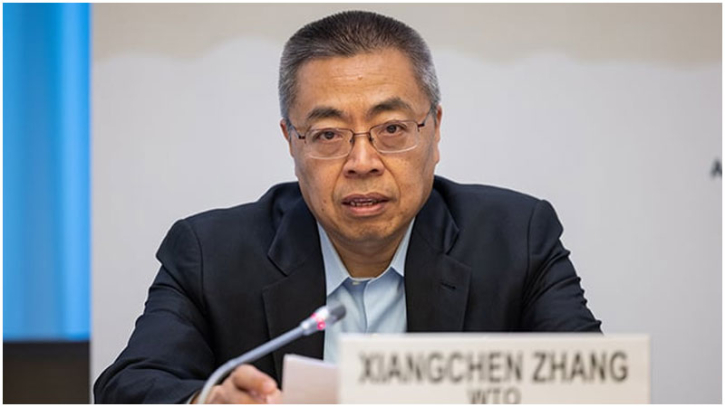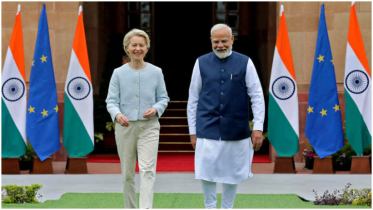WTO reaffirms support for strengthening Bangladesh's trade competitiveness

The World Trade Organization (WTO) has reiterated its commitment to helping Bangladesh diversify its exports and strengthen its position in global markets, with particular emphasis on fully implementing the Trade Facilitation Agreement (TFA) and meeting Sanitary and Phytosanitary (SPS) standards.
In an online interview, WTO Deputy Director-General Xiangchen Zhang outlined the organization’s targeted support for Bangladesh, noting that the country was among the earliest Least Developed Countries (LDCs) to ratify the TFA in 2016—a move that underscored its dedication to streamlining trade procedures.
Zhang said the TFA aims to reduce trade costs and improve efficiency at borders, enabling Bangladeshi exporters to expand into new markets. To ensure smooth implementation, WTO members established the Trade Facilitation Agreement Facility (TFAF), which helps developing economies, including LDCs, access assistance from development partners and guides those partners in directing support toward specific TFA-related needs.
He highlighted that Bangladesh has already received technical assistance from the Global Alliance for Trade Facilitation and the World Bank Group. Additionally, the TFAF offers grants of US$30,000 to US$200,000 for capacity-building efforts, especially when other forms of support are unavailable.
Addressing SPS-related challenges, Zhang said the WTO provides a wide range of tools to help developing countries strengthen their ability to comply with the SPS Agreement. These include the e-Ping alert system for monitoring global SPS updates, Transparency Champion Trainings, and tailored in-country programmes focused on resolving implementation issues.
He also pointed to a declaration adopted last year on special and differential treatment provisions under the SPS and Technical Barriers to Trade (TBT) agreements, ensuring that developing countries—including LDCs—receive timely support when new standards or regulations are being developed.
The Standards and Trade Development Facility (STDF) is another major platform assisting LDCs. Bangladesh, he noted, has partnered with the STDF on multiple projects: strengthening the capacity of small-scale shrimp farmers, promoting biopesticides, enhancing seed trade, and improving SPS practices for vegetable exports.
Bangladesh’s engagement with the TFA and SPS agreements reflects its broader strategy to make trade procedures more efficient, transparent, and compliant with global standards, while safeguarding human, animal, and plant health. The country has also launched an SPS Information Management System to provide exporters and importers with a centralized hub for SPS-related information as part of its push to strengthen export competitiveness.
.png)




